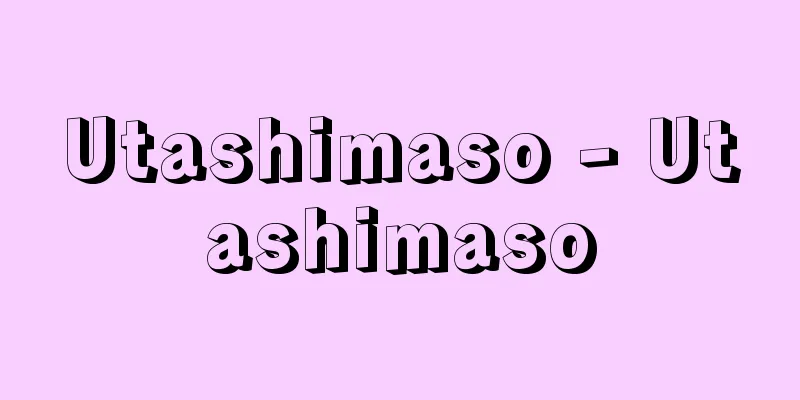ATC - Attitude Control

|
Air traffic control is the abbreviation for air traffic control. It is a task of providing assistance from the ground to ensure the safe operation of aircraft in flight. The following five objectives have been set by the International Civil Aviation Organization (ICAO): (1) Preventing collisions between aircraft. (2) Preventing collisions between aircraft and obstacles within the airport driving area. (3) Maintaining and promoting the orderly flow of air traffic. (4) Providing advice and information useful for safe and efficient flight. (5) Notifying appropriate authorities of aircraft requiring search and rescue assistance and providing such authorities with assistance, when necessary. Strictly speaking, ATC refers to the tasks performed for the purposes of (1), (2), and (3) above, but these five tasks are all performed by air traffic controllers, and generally they are all referred to as ATC. ATC tasks are divided according to their subject and content. [Kyoki Aoki and Shinichiro Nakamura] Airfield control operationsThis is the job of controlling aircraft flying in the airspace at and around the airport (usually within a 9-kilometer radius circle around the airport, at altitudes of 900 meters or less, and in some areas 1,850 meters or less), and the controller performs this in a glass-walled room at the top of the control tower at the airport. This job consists of three parts: ground control, which controls aircraft and vehicles within the airport's operating area excluding the runway; local control (airfield control), which gives permission and instructions for aircraft to take off and land; and clearance delivery, which conveys clearances to the destination issued by air traffic control to departing IFR (instrument flight rules) aircraft. [Kyoki Aoki and Shinichiro Nakamura] Air traffic control operationsIt is responsible for controlling aircraft flying under IFR in controlled areas other than the airspace around airports, and confirms the current position and altitude of aircraft using radio telephones and radar, and issues necessary instructions. It also checks and approves flight plans submitted by pilots before flight. These tasks are carried out by controllers at air traffic control centers, commonly known as centers. There are four air traffic control centers in Japan: Sapporo, Tokyo, Fukuoka, and Naha. [Kyoki Aoki and Shinichiro Nakamura] Approach control operationsThis is a method of controlling the ascent of aircraft flying IFR within an approach control area after takeoff or the descent for landing, and is commonly known as an approach. Approach control performed using radar is specifically called terminal radar control, and controllers control the area while watching the radar in a darkened IFR room under the control tower. At airports that do not use radar, this is usually done in the same room as airport control. In addition, there is also the landing guidance control service, which is provided for aircraft that are landing, especially when visibility is poor. This involves guiding aircraft to the runway using the GCA (Ground Controlled Approach), which has the advantage that the facility can be moved, but with the development of the ILS (Instrument Landing System), this is now rarely used except at military airports. [Kyoki Aoki and Shinichiro Nakamura] "A Story of Air Traffic Control" by Hideo Nakano (2001, Transportation Research Association) [References] | | | | | |Source: Shogakukan Encyclopedia Nipponica About Encyclopedia Nipponica Information | Legend |
|
航空交通管制のことで、air traffic controlの略称。航行中の航空機が安全に運航できるように地上から援助を行う業務。その目的として次の五つが国際民間航空機関(ICAO(イカオ))で定められている。 (1)航空機相互の衝突防止。 (2)飛行場走行区域内にある障害物と航空機との衝突防止。 (3)航空交通の秩序ある流れの維持と促進。 (4)安全で効率的な飛行に役だつ助言および情報の提供。 (5)捜索救難の援助を必要とする航空機について関係機関への通知と、必要な場合はその機関への援助。 ATCとは厳密にいえば以上のうち(1)(2)(3)の目的のために行う業務をさすが、これら五つの業務はすべて航空管制官が行うものであり、一般的にはこれらを総称してATCとよぶことが多い。ATCの業務は、対象および内容に応じて分担が決められている。 [青木享起・仲村宸一郎] 飛行場管制業務飛行場および飛行場周辺(通常、空港を中心に半径9キロメートルの円内で高度900メートル以下、一部は1850メートル以下)の空域を飛行する航空機のコントロールを行う業務で、管制官は飛行場内の管制塔(コントロール・タワー)の上部にあるガラス張りの部屋でこれを行う。この業務は、空港内の滑走路を除く走行地域内の航空機と車両をコントロールするグラウンド・コントロール(地上管制)、航空機の離着陸の許可および指示を与えるローカル・コントロール(飛行場管制)、IFR(計器飛行方式)の出発機に対して航空交通管制部から発出される目的地までのクリアランス(管制承認)を伝達するクリアランス・デリバリー(管制承認伝達)の三つである。 [青木享起・仲村宸一郎] 航空路管制業務飛行場周辺の空域以外の管制区域をIFRで飛行する航空機のコントロールを行うもので、無線電話とレーダーにより航空機の現在位置や高度を確認し必要な指示を行う業務である。また飛行前にパイロットから提出された飛行計画をチェックし、これを承認する業務も行う。これらの業務は通称センターとよばれる航空交通管制部の管制官によって行われる。日本国内の航空交通管制部は札幌、東京、福岡、那覇(なは)の4か所にある。 [青木享起・仲村宸一郎] 進入管制業務進入管制区域内をIFRで飛行する航空機の離陸後の上昇飛行あるいは着陸のための降下飛行についてコントロールを行うもので、通称アプローチとよんでいる。進入管制のうちレーダーにより行うものをとくにターミナル・レーダー管制業務といい、管制官は管制塔の下にある暗室のIFRルームでレーダーを見ながらコントロールを行う。レーダーを使用しない飛行場では、通常、飛行場管制と同じ部屋で行われる。 そのほか、とくに視界の悪いときなどに着陸する航空機に対して行われる着陸誘導管制業務がある。これはGCA(地上管制進入方式)を用いて滑走路のすぐそばまで誘導を行うもので、施設の移動が可能という利点があるが、ILS(計器着陸装置)の発達とともに、現在は軍用飛行場以外はほとんど使用されていない。 [青木享起・仲村宸一郎] 『中野秀夫著『航空管制のはなし』(2001・交通研究協会)』 [参照項目] | | | | | |出典 小学館 日本大百科全書(ニッポニカ)日本大百科全書(ニッポニカ)について 情報 | 凡例 |
<<: ATP - Association of Tennis Professionals
>>: Aedicula (English spelling)
Recommend
Otokobanashi - A comedy about a joke
→ Rakugo Source : Heibonsha Encyclopedia About MyP...
Ringed seal - Ringed seal
Order Pinnipedia, Family Phocidae (illustration). ...
Line stamp - Gyo-osho
…In recent years, many have been found in practic...
Inugiri - Inugiri
...The bark exudate contains a lot of tannin and ...
Souvenirs - Gifts
〘noun〙① When produce from a distant place is sent ...
Ceratocystis ips (English name) Ceratocystisips
…[Tsubaki Keisuke]. . . *Some of the terminology ...
Acrobatics
It means acrobats and acrobats who perform acrobat...
Radiation Hazard Prevention Law
The "Law Concerning Prevention of Radiation H...
Solar House - Sorahausu (English spelling) solar house
This refers to houses and other buildings whose f...
Temporary chores - rinjizoyaku
In the middle and late Heian period, various taxes...
Oirot Khan - Oirot Khan
...The population in 1989 was 192,000, and the ca...
Layered underwear - Layered underwear
…Undergarments have become outerwear, just as the...
Kerogene
…Another fundamental difference from coal is the ...
Gas mask - gas mask
A mask worn on the face to protect the respirator...
Sea of Japan
A monk and sculptor from the early Edo period. Bo...









